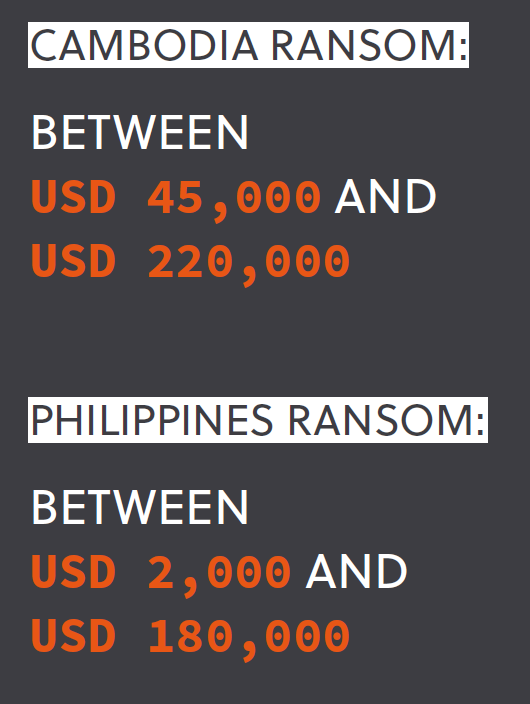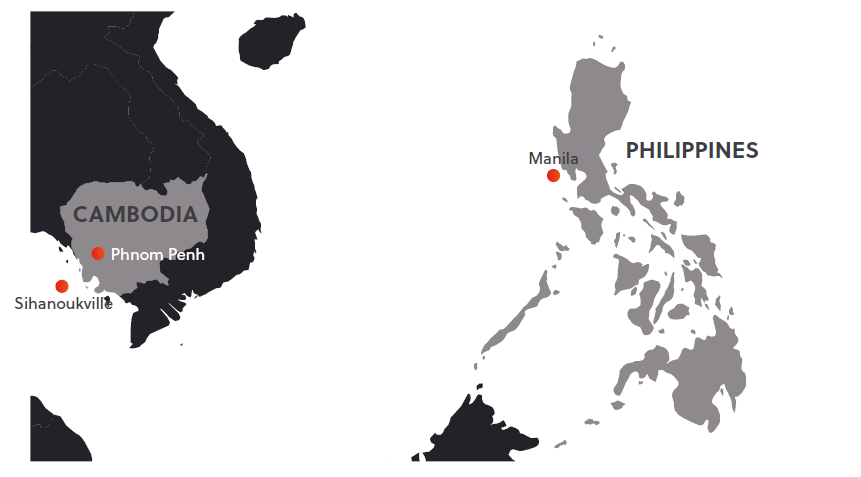Dealing a Bad Hand: Loan Sharks, Gambling and Kidnappings in Southeast Asia
A recent spate of kidnappings targeting Chinese nationals in Cambodia has raised significant concerns around the prevalence of transnational organised crime in the Southeast Asian gambling industry. In the most recent incident on 12 September, four Chinese nationals were arrested in Sihanoukville, Cambodia, in connection with the kidnapping and torture of another Chinese national. The victim was allegedly detained at a casino and tortured with an electronic gas lighter until his family paid an undisclosed ransom amount. The case, along with most other recent incidents of this kind, was linked to unpaid gambling debts. Similar cases targeting Chinese, Japanese, South Korean, Singaporean and Malaysian nationals have also been reported in the Philippines in the past year.
The modus operandi is consistent in both Cambodia and the Philippines. Gamblers, who are often visiting businesspeople, will be approached by loan sharks at casinos and encouraged to borrow cash. When they gamble away the borrowed money, they are abducted and detained, usually in a hotel room or on the casino premises. In some cases, they are tortured and, in all cases, their family or friends in their home country receive a ransom demand. In Cambodia, past ransom demands have ranged between USD 45,000 and USD 220,000. Meanwhile, in the Philippines, past demands varied between USD 2,000 and USD 180,000

Long-standing ties between the regional gambling industry and transnational organised crime likely underpin these kidnappings. Triads, such as the 14K group and Bamboo Union, have established links to gambling in Macau, Hong Kong, and Taiwan. Many casino owners from these regions dominate the industry in Cambodia and the Philippines. Loan shark syndicates linked to triads have also been allowed to operate inside these casinos. For example, in a recent case in Cambodia, the loan sharks allegedly rented a fourth-floor room in the casino where they detained and tortured the victim.
There is an ongoing drive by Southeast Asian governments to attract investment towards the gambling sector. The Cambodian government, for example, generates an estimated USD 50 million annually in tax revenue from gambling. One of the main investors, a Hong Kong based firm, made an estimated USD 21.1 billion from its gambling-industry stake in 2017, an increase of USD 8.71 billion from 2016. Related sectors also benefit from the presence of casinos. The number of tourists from China to Cambodia, in particular, rose by about 40 percent to 1.2 million in 2017, in part because of the popularity of gambling. Hand-in-hand with this investment, however, come increased opportunities for loan sharks engaged in kidnapping syndicates.
The victim was allegedly detained at a casino and tortured with an electronic gas lighter until his family paid an undisclosed ransom amount.

Eyeing the success of the Cambodian casino industry, countries such as Myanmar and Thailand are looking to legalise gambling. Given this regional push to legalise gambling in other Southeast Asian countries as a means of attracting foreign investment, opportunities for kidnappings of this nature in the region more broadly are likely to increase.